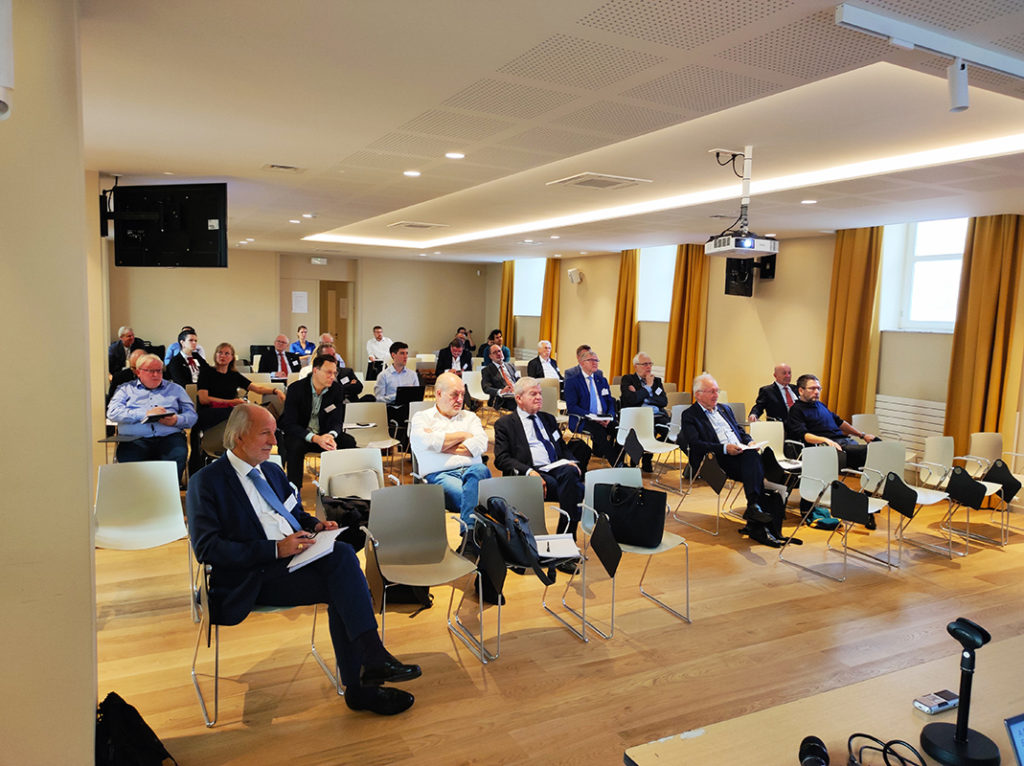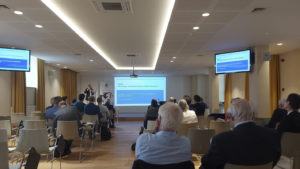In 2020, a Euro-CASE Working Group chaired by the Royal Academy of Engineering (UK) was appointed to carry out a scoping exercise on how the Euro-CASE network can enhance its engagement with ECPs, considered to be important as as the emerging experts and leaders within science, technology and engineering. The Working Group presented its recommendations in November 2020, including data on current levels of engagement, successful initiatives and mechanisms for engagement, and recommendations on how Euro-CASE itself and its member academies can enhance or scale up their approach.
On 20 September 2022, a workshop session for Euro-CASE stakeholders, focusing on one or more aspects of the recommendations, was organised. The aim of such a workshop was to bring Academy representatives together to share knowledge, lessons and good practice for engaging with ECPs (this will build on details of many several Academy initiatives revealed in the 2020 survey). You will find below a short introduction for each presentations. Following this Euro-CASE workshop, Euro-CASE will decide very soon on the follow-up and the actions to be undertaken to integrate more effectively the ECPs in the work of Euro-CASE and its member academies.
#1
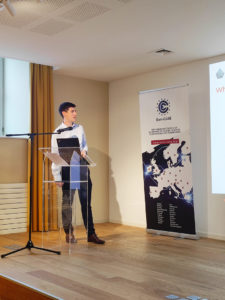
Presentation of the findings from the 2020 survey of Euro-CASE Academies by Ben McAlinden
This presentation sets the scene for the day’s workshop by summarising findings from an internal Euro-CASE project that set out to understand how members of Euro-CASE member academies engage with early-career professionals.
In 2020, the project team conducted a survey to gather evidence from Euro-CASE member academies on why and how they seek to engage with this key demographic, and developed a set of recommendations that offer a guide for academies seeking to enhance their approach or scale up their activities.
The survey also revealed a wealth of different initiatives and approaches employed by national academies, as well as various common challenges and lessons learned, all of which will be explored throughout the remainder of the day’s discussions.
#2
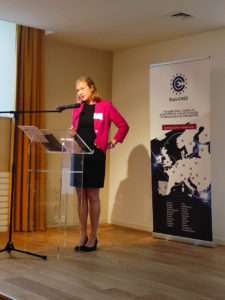
acaLAB – Young Talents @acatech by Rebecca Ebner
In 2019, we organized the pilot workshop format « acaLAB – Young Talents @acatech » for 20 young talents with different backgrounds from science, industry and society. Within the framework of the topic « Human Enhancement and the Future of Learning », the participants took part in a guided tour of Fraunhofer IAO’s Neuro and Interaction Lab and developed future scenarios. Based on the scenarios, they discussed the requirements for political and social actors with proven experts (acatech members). This is our approach of a reverse mentoring program with young professionals and our members.
The interactive format acaLAB thrives on the presence of the participants. That is why we are planning the next acaLAB in spring 2023 together with the Technical University of Munich (working title: « Sustainable Building and Housing »). For future acaLABs, we aim for a more international context.
#3
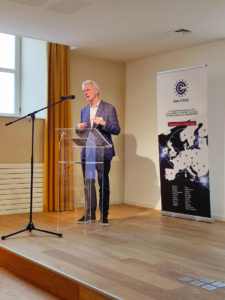
AcTI’s Young Innovators Programme by Bertrand van Ee and Jiajun Cen
AcTI launched its Young Innovators programme in 2018 with focus on young entrepreneurs. In the first wave 9 young innovators participated. The second wave just started with 10 participants. Each young innovator receives a 2-year membership and they get a buddy (one of the senior AcTI academicians of choice). They objective for AcTI and the Young Innovators is to create more impact.
#4
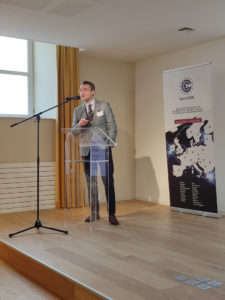
YATSI: Young Academy of Technology, Science, and Innovation of Denmark by Janus Juul Eriksen
The talk presents thoughts and considerations behind the ongoing establishment of a new young academy under the Danish Academy of Technical Sciences (ATV). Why is there a need for a body of young academics, industrial researchers, and entrepreneurs to meet regularly in a professional academy network affiliated with ATV, and in what ways may such a youth organization complement and add to ongoing activities within the main academy? Finally, the interplay (or lack hereof) between the new young academy under ATV and the well-established, interdisciplinary Young Academy of Denmark under the Royal Danish Academy of Sciences and Letters has been discussed.
#5
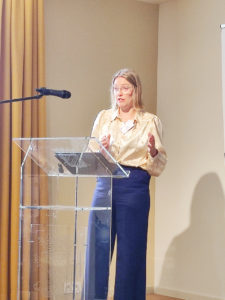
IVA’s Leadership Programme or Entrepreneurship Programme by Elin Elliot
IVA’s Innovation Leadership Programme gives young leaders in research, development and innovation the opportunity to develop their knowledge and leadership, build networks, and stimulate ideas that are strategically important for the future of Swedish industry.
The programme focuses on R&D/I as well as leadership issues, and consists of national and international study visits. By sharing knowledge, experiences and methodologies for three years, participants stimulate new ideas on how to conduct research, development and innovation and strengthen networks within the Swedish research and innovation system.
Being founded already in 1970, alumni being the key to develop and strengthen the programme but also great ambassadors to the programme and IVA.
#6
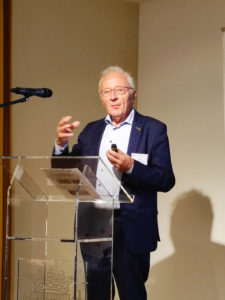
KVAB’s establishment of a National Young Academy by Joos Vandewalle and Bart Vermang
The Young Academy of Belgium operates autonomously as an association of young top researchers and artists with their own views on policy, society, research and the arts.
It is founded in 2013 within the KVAB and the Royal Academy of Dutch Language and Literature (KANTL) and later also KAGB (medicine). The KVAB secretariat supports the activities. Academic members are affiliated with a Flemish university and/or a Flemish or federal academic research institution and have obtained previously their PhD degree between three and ten years. Artist members are minimum 25 and maximum 39 years and have a strong affinity with the topics of interest to YA. The membership lasts for five years and afterwards they join the YA Alumni, but not automatically the senior Academy. The candidates are elected after an open call, based on an outstanding track record and a strong motivation.
#7
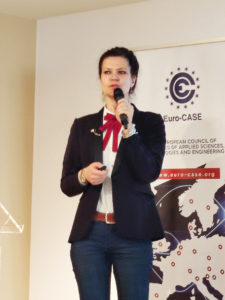
Polish Young Academy (PYA) of the Polish Academy of Sciences by Anna Fabijańska
The talk provides an overview of the Polish Young Academy (PYA) of the Polish Academy of Sciences. First, the PYA membership model and new members selection procedure will be explained. Then, the role and activities of PYA will be summarised. This will be followed by an overview of cooperation and interaction with the regular academy. Next, recommendations and comments on autonomy will be given. Finally, the successes of PYA will be summarised.
#8
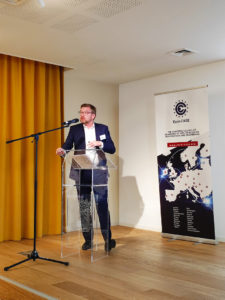
How RAEng and QEPrize suggessfully engage with ECPs by Jonathan Narbett
This presentation examines how The Royal Academy of Engineering and The Queen Elizabeth Prize for Engineering engage with early career engineers.
Both the Early Career Engineers Group organised by the Academy and the QEPrize Ambassador Network offer training and engagement activities for early career professionals alongside events where they can meet and network with more experienced colleagues.
We look at the development of both these networks and discuss how we identified our priorities and objectives for engaging with this key group.
We highlight some of the activities which work well, and have been a success both for the Academy and the QEPrize, and for the engineers participating.
We talk about the development of the networks and how we identify opportunities for engagement – from speaking opportunities and bespoke workshops to chances to take over Twitter accounts or write for us.
We also point to some of the challenges encountered and how we as sponsoring organisations have worked with our early career engineers to overcome these.
#9
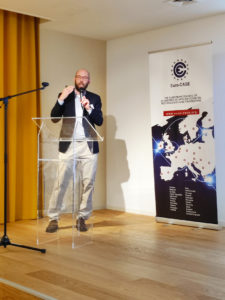
Young Academy Science Advice Structure (YASAS): a role of Early and Mid-Career Researchers in the SAPEA project by Jacek Kolanowski
Young Academies Science Advice Structure (YASAS) is the first formalised network of Young Academies in Europe founded in November 2020, currently with 16 member academies. YASAS was created in order to formally involve the community of Early and Mid-Career Researchers (EMCRs) in the Scientific Advice Mechanism (SAM) of European Commission. After over two years of work, since 1st of May 2022, YASAS has become one of five equal partners in the EU-funded SAPEA project (Science Advice for Policy by European Academy). Through this project YASAS focusses on:
a) nominating diverse experts to provide an independent evidence-based review reports on topics requested by the European Commission and
b) optimising framework of scientific advice mechanism and associated processes by changing the procedures with the objective of increased diversity, transparency and independence
c) diagnosing the current state and proposing solutions to increase the involvement of EMCRs in SAM.
Contact: yasas.board@gmail.com




